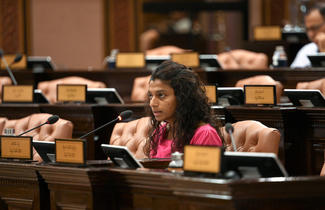- ImpactWe help parliaments to become greener and to implement the Paris agreement.We support democracy by strengthening parliamentsWe work to increase women’s representation in parliament and empower women MPs.We defend the human rights of parliamentarians and help them uphold the rights of all.We help parliaments fight terrorism, cyber warfare and the proliferation of weapons of mass destruction.We encourage youth participation in parliaments and empower young MPs.We support parliaments in implementing the SDGs with a particular focus on health and climate change.
- ParliamentsNearly every country in the world has some form of parliament. Parliamentary systems fall into two categories: bicameral and unicameral. Out of 190 national parliaments in the world, 78 are bicameral (156 chambers) and 112 are unicameral, making a total of 268 chambers of parliament with some 44,000 members of parliament. IPU membership is made up of 180 national parliaments
Find a national parliament
We help strengthen parliaments to make them more representative and effective. - EventsVirtual eventThe IPU Charter on the Ethics of Science and Technology: Harnessing science, technology and innovation responsibly
- Knowledge
Discover the IPU's resources
Our library of essential resources for parliamentsGlobal data for and about national parliamentsLatest data and reports about women in parliamentResolutions, declarations and outcomes adopted by IPU MembersRecent innovations in the way parliaments workThe latest climate change legislation from the London School of Economics' database
Parliamentary working methods during the coronavirus pandemic

© People's Majlis of Maldives
Parliaments must continue to function during the coronavirus pandemic. For some, this means innovative solutions to overcome the legal, technical and logistical challenges of remote working. When parliaments sit remotely, either in plenary or committee, new laws or procedures are often required. Spain, Brazil, Norway and Finland have all amended their laws to allow for remote sittings. The United Kingdom Parliament has approved remote committee sittings and is working on remote plenaries. The New Zealand Parliament has instigated a special committee that meets remotely in order to scrutinize the work of the Government at this time. Some parliaments have the advantage of a recess. This is not so much breathing space as an opportunity to be more strategic and a little less reactive.
Parliaments in Brazil, Spain and Maldives have developed innovative ways to run virtual plenaries. Other are testing this out, and more parliaments are using tools such as Microsoft Teams and Zoom to hold committee meetings, or at least to allow external evidence to be heard. A crisis such as this is also an opportunity to innovate and to test new ways of working. There are some major challenges on the road to remote parliament and no instant digital solutions. Parliaments face a number of challenges, not least:
- Access for members – all members must be able to access and use the systems.
- Security of the systems – they must be secure enough for its purpose.
- Veracity of the process – the process has to be trusted, transparent and auditable.
IPU resources
The Centre for Innovation in Parliament (CIP) has been working to share what parliaments are doing and to support parliaments trying to find innovative solutions. We have produced a range of resources to help, and our CIP Open Data Hub, hosted by the Brazilian Chamber of Deputies, has expanded its WhatsApp communication channel to share information and questions about remote working for parliaments. This group is now open to senior ICT staff from any parliament – anyone interested in joining should contact us at [email protected].
Parliamentary working methods and remote working
A private webpage on remote working containing more technical details is available to parliaments only. Please contact [email protected] for more information.
Parliaments are requested to provide updates via this short survey: https://www.surveygizmo.eu/s3/90224295/remote-working-in-parliaments
Gender equality and human rights in the response to the COVID-19 pandemic: The IPU has published two guidance notes for parliaments to help them ensure that perspectives on gender equality and human rights are mainstreamed in their responses.




